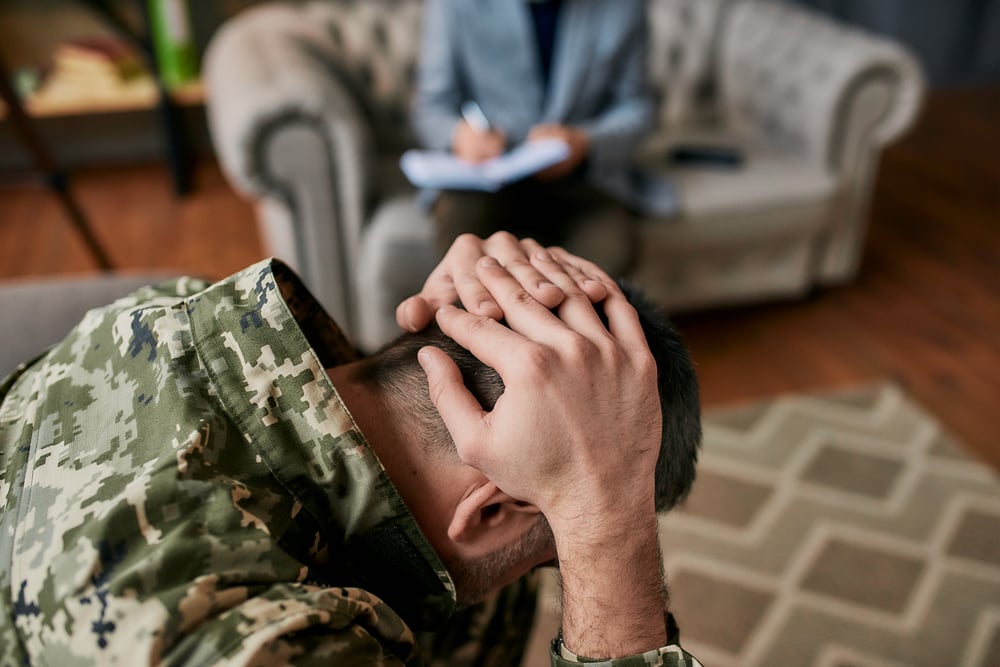 A person’s mental health condition can contribute to drug or alcohol abuse. Post-traumatic stress disorder (PTSD) is a debilitating mental disorder that causes depression, intense anxiety, and intrusive memories or flashbacks that interfere with life. Many people develop PTSD from childhood abuse, military combat, natural disasters, or sexual assault. First responders are at risk of PTSD due to on-scene tragedies, accidents, or crimes.
A person’s mental health condition can contribute to drug or alcohol abuse. Post-traumatic stress disorder (PTSD) is a debilitating mental disorder that causes depression, intense anxiety, and intrusive memories or flashbacks that interfere with life. Many people develop PTSD from childhood abuse, military combat, natural disasters, or sexual assault. First responders are at risk of PTSD due to on-scene tragedies, accidents, or crimes.
People with PTSD often turn to drugs or alcohol to suppress his or her pain. Drug or alcohol abuse with PTSD is a dual diagnosis – one from an impairing psychiatric disorder and the other a substance addiction. A person with PTSD abuses drugs or alcohol as a way to seek temporary relief from the reality of daily life. He or she uses more and more to escape from painful memories and flashbacks, which increases the risk of drug or alcohol addiction.
A person with a dual diagnosis needs to get treatment immediately for his or her mental condition and addiction. A medical professional or medical team monitors the combined treatment and medication if needed. Many drugs can worsen symptoms of PTSD and cause physical impairment, overdose, or death. Alcohol abuse damages the brain’s function and causes physical damage to major organs in the body. Alcohol affects a person’s critical thinking, vision, speech, coordination, movement, and can cause overdose or death.
A person with PTSD is at high risk of substance abuse but when treated, the risk for substance abuse lessens. PTSD causes angry outbursts, feelings of helplessness, aggressive behavior, and restlessness. Individuals diagnosed with PTSD and drug or alcohol abuse often experience other disorders such as depression, chronic pain, chronic illness, or attention deficit disorder.
People living with PTSD often relive traumatic events, have nightmares, and can become socially withdrawn. A person with PTSD can feel ashamed or guilty from the trauma and be reluctant to seek help. When a person with PTSD and substance abuse goes to treatment, he or she needs intense support and encouragement from family and friends. A dual diagnosis can be difficult to treat, but recovery is possible.
If you or a loved one is struggling with a mental health condition and a drug or alcohol addiction, get help now. Cypress Lake Recovery specializes in treating dual diagnosis as it relates to mental health conditions and addiction treatments combined with a focus on healing the mind, body, and spirit. Addiction is treatable and you are not alone.
Cypress Lake Recovery specializes in addiction treatment and is located in a serene, remote, lush-green, oxygen enriched environment. The program encompasses holistic addiction therapy and offers yoga and meditation for the mind, body, and soul. The focus is on physical, mental, and emotional well-being by generating the balance of life-enriching treatment, wellness, and healthy, sober, sustainable relationships. Call us to get started: 866-217-2636

